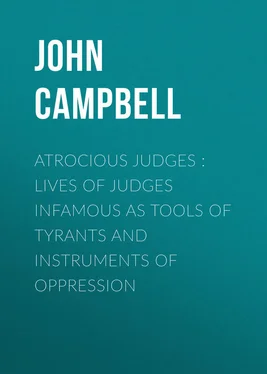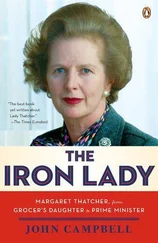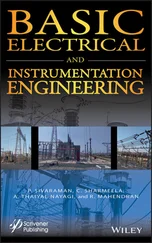John Campbell - Atrocious Judges - Lives of Judges Infamous as Tools of Tyrants and Instruments of Oppression
Здесь есть возможность читать онлайн «John Campbell - Atrocious Judges - Lives of Judges Infamous as Tools of Tyrants and Instruments of Oppression» — ознакомительный отрывок электронной книги совершенно бесплатно, а после прочтения отрывка купить полную версию. В некоторых случаях можно слушать аудио, скачать через торрент в формате fb2 и присутствует краткое содержание. Жанр: foreign_antique, foreign_prose, Биографии и Мемуары, на английском языке. Описание произведения, (предисловие) а так же отзывы посетителей доступны на портале библиотеки ЛибКат.
- Название:Atrocious Judges : Lives of Judges Infamous as Tools of Tyrants and Instruments of Oppression
- Автор:
- Жанр:
- Год:неизвестен
- ISBN:нет данных
- Рейтинг книги:5 / 5. Голосов: 1
-
Избранное:Добавить в избранное
- Отзывы:
-
Ваша оценка:
- 100
- 1
- 2
- 3
- 4
- 5
Atrocious Judges : Lives of Judges Infamous as Tools of Tyrants and Instruments of Oppression: краткое содержание, описание и аннотация
Предлагаем к чтению аннотацию, описание, краткое содержание или предисловие (зависит от того, что написал сам автор книги «Atrocious Judges : Lives of Judges Infamous as Tools of Tyrants and Instruments of Oppression»). Если вы не нашли необходимую информацию о книге — напишите в комментариях, мы постараемся отыскать её.
Atrocious Judges : Lives of Judges Infamous as Tools of Tyrants and Instruments of Oppression — читать онлайн ознакомительный отрывок
Ниже представлен текст книги, разбитый по страницам. Система сохранения места последней прочитанной страницы, позволяет с удобством читать онлайн бесплатно книгу «Atrocious Judges : Lives of Judges Infamous as Tools of Tyrants and Instruments of Oppression», без необходимости каждый раз заново искать на чём Вы остановились. Поставьте закладку, и сможете в любой момент перейти на страницу, на которой закончили чтение.
Интервал:
Закладка:
Ultimately these commissions for both criminal and civil trials were given to the same persons, who also received a commission of the peace; and the whole territory of England being divided into six circuits, two of the judges, to whom other assessors were added, held assizes twice a year in each county, 17 17 In London and Middlesex four sessions were held a year; in the four northern counties only one.
for the trial of issues found in Westminster Hall – a system closely imitated in all our American states.
But the distribution of authority above described as having been originally made to the different courts of Westminster Hall, into which the Aula Regis was divided, did not long remain undisturbed. Courts have at all times, and every where, exhibited a great disposition to extend their jurisdiction, of which we have already had an example in the authority over marriages, wills, and the personal property of intestates, assumed by the English ecclesiastical courts; and considering the double jurisdiction under which we citizens of the United States live, – that of the federal and that of the state courts, – and the disposition so strongly and perseveringly exhibited by the federal courts to enhance their authority, while the state courts continue to grow weaker and tamer, this is, to us, a subject of no little interest.
Besides the general love of extending their jurisdiction characteristic of all courts, and indeed only one of the manifestations of the universal passion for power, the English Courts of King’s Bench and Exchequer had a special motive for seeking to encroach on the exclusive civil jurisdiction of the Common Pleas. The salaries of the judges were very small – originally only sixty marks, equal to £40 sterling, or about $200 a year; nor was their amount materially increased down to quite recent times; but to this small salary were added fees paid by the parties to the cases tried before them; and the judges of the two other courts were very anxious to share with their brethren of the Common Pleas a part of the rich harvest which their monopoly of civil cases enabled them to reap from that source. Not only did the Court of King’s Bench start the idea that all suits in which damages were claimed for injuries to person or property, attended by violence or fraud, came properly within its jurisdiction as “savoring of criminality;” it found another reason for extending its jurisdiction, by suggesting that when a person was in the custody of its officers, he could not, with a due regard to “legal comity,” be sued on any personal claim in any other court, since that might result in his being taken out of the hands of their officer who already had him in custody, and was entitled to keep him. If any body had any claim against such a person, (such was the position plausibly set up,) it ought to be tried before the court in whose custody he already was. Having thus prepared the way, the Court of King’s Bench did not stop here; but by a fiction, introduced into the process with which the suit was commenced, that the defendant was already in the custody of their marshal for a fictitious trespass which he was not allowed to deny, jurisdiction was gradually assumed in all private suits except real actions.
The Court of Exchequer in like manner claimed exclusive jurisdiction of suits for debt brought by the king’s debtors, since by neglecting to pay them they might be prevented from paying their debts to the king; and under the pretence, which nobody was allowed to dispute, that all plaintiffs were the king’s debtors, that court, too, gave an extent to their jurisdiction similar to that of the King’s Bench. The exclusive jurisdiction of real actions, which alone remained to the Common Pleas, by the disappearance of villainage and the great increase of personal property, every day declined in importance; but even this was at last taken from the Common Pleas by the invention of Chief Justice Rolle, during the time of the Commonwealth, of the action of ejectment, which proceeds from beginning to end upon assumptions entirely fictitious, but which by its greater convenience entirely superseded real actions in England and in most of the Anglo-American States.
But while these three common law courts were thus exercising their ingenuity to intrench upon each other’s jurisdiction, their pertinacious adherence to powers and technicalities, and their unwillingness, except in matters where the alleged prerogative of the crown was concerned, to do any thing not sanctioned by precedent, led them to refuse justice or relief to private suitors in many crying cases. Such cases still continued to be brought by petition before the king, and by him were referred to his chancellor, who in the earlier times was commonly his confessor, and who since the abolition of the office of chief justiciary had become the first official of the realm. Undertaking in these cases to prevent a failure of justice by rising above the narrow technicalities of the common law, and guided by the general principles of equity and good conscience, the chancellor gradually assumed a most important jurisdiction, which in civil matters ultimately raised his court to a rank and importance above that of all the others. With the advance indeed of wealth and civilization, appeals to chancery became more and more frequent; and if the common law courts had not altered their policy, and adopted upon many points equitable ideas, it seems probable that so far as civil suits were concerned, those courts would long since have been superseded altogether. 18 18 This history holds out to our state tribunals significant warnings as to the danger to which they are exposed on the part of the federal judges, especially those of the District Courts, who sitting singly on the bench, and with powers enormously and most dangerously extended by recent legislation, have from the unity and concentration of the one-man power, a great advantage over courts liable to be retarded in their action, if not reduced to imbecility by divisions among their members.
What indeed of and the practice in the Equity Court entirely into the hands of lawyers bred in Westminster Hall, by whom equity itself was made subservient to precedent, and the whole procedure involved in forms and technicalities even more dilatory and expensive than those of the common law courts.
The same disinclination on the part of these common law courts to go beyond the strict limit of technical routine, led, with the progress of commerce and navigation, to the erection, in the time of Edward III., of the Admiralty Court, mainly for the trial of injuries and offences committed on the high seas, of which, on technical grounds, the courts of common law declined to take jurisdiction. After the foundation of English colonies, 19 19 The appeal from the English colonial courts to the king in council – the appeal cases being heard and decided by a committee of the privy councillors learned in the law – is another remnant of the old system, in which the constitution of the ancient Aula Regis has been very accurately preserved.
branches of this court, to which also was given an exchequer jurisdiction, were established in the colonies, and on that model have been formed our federal District Courts.
While the common law courts, through their preference of technicalities to justice, thus enabled the chancellors to assume a civil jurisdiction by which they themselves were completely overshadowed, driving the Parliament also to the necessity of creating, for both civil and criminal matters, a new Court of Admiralty, 20 20 Both these courts proceeded according to the forms of the civil law, and without a jury. But occasionally the court of equity directed questions of fact arising before it to be settled by jury trial, and by a statute of Henry VIII. the trial of all maritime felonies before the Admiralty Court was directed to be by jury.
they gave at the same time the support of their acquiescence and silence to other innovations, prompted not by public convenience, but by the very spirit of tyranny.
Интервал:
Закладка:
Похожие книги на «Atrocious Judges : Lives of Judges Infamous as Tools of Tyrants and Instruments of Oppression»
Представляем Вашему вниманию похожие книги на «Atrocious Judges : Lives of Judges Infamous as Tools of Tyrants and Instruments of Oppression» списком для выбора. Мы отобрали схожую по названию и смыслу литературу в надежде предоставить читателям больше вариантов отыскать новые, интересные, ещё непрочитанные произведения.
Обсуждение, отзывы о книге «Atrocious Judges : Lives of Judges Infamous as Tools of Tyrants and Instruments of Oppression» и просто собственные мнения читателей. Оставьте ваши комментарии, напишите, что Вы думаете о произведении, его смысле или главных героях. Укажите что конкретно понравилось, а что нет, и почему Вы так считаете.












